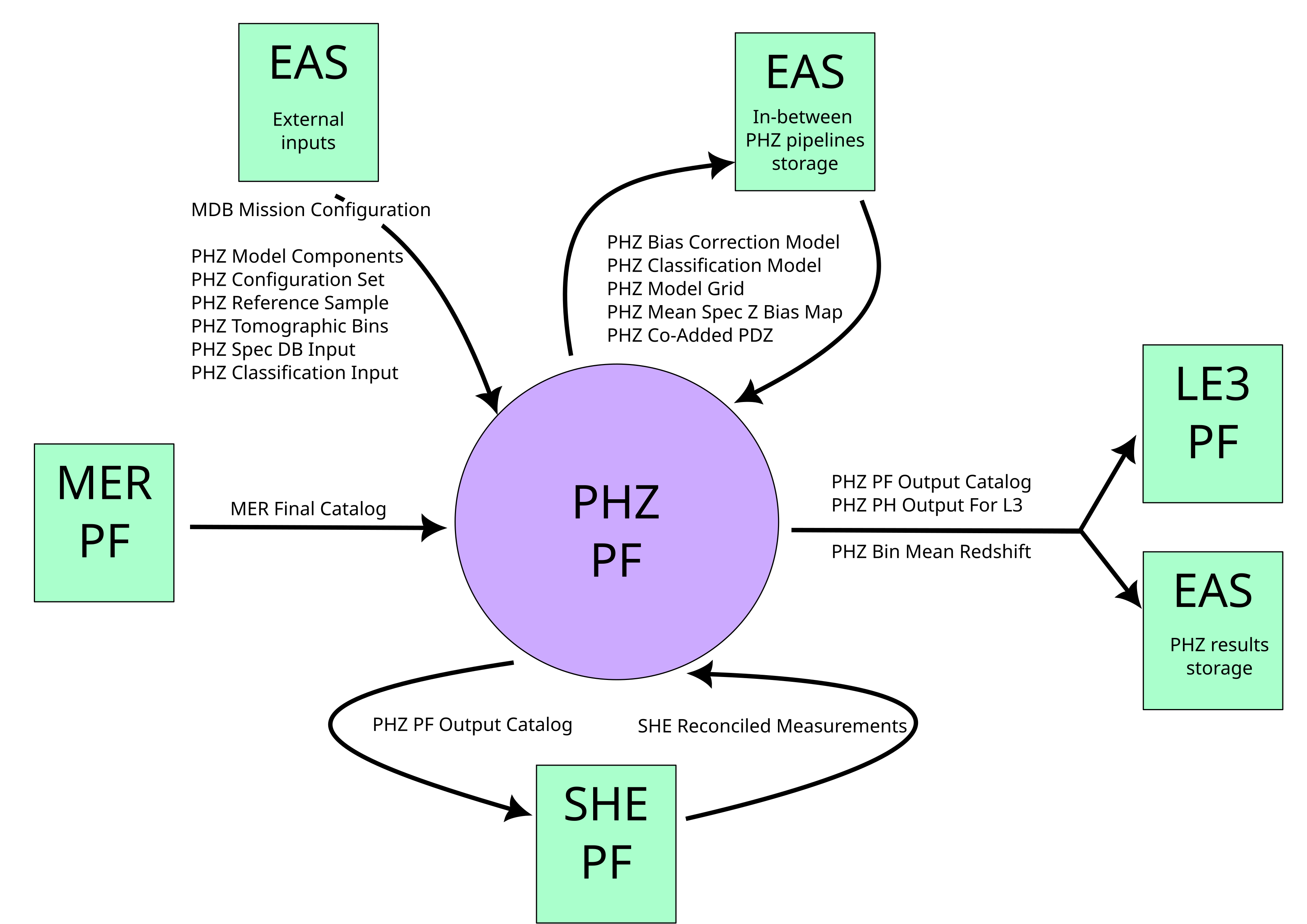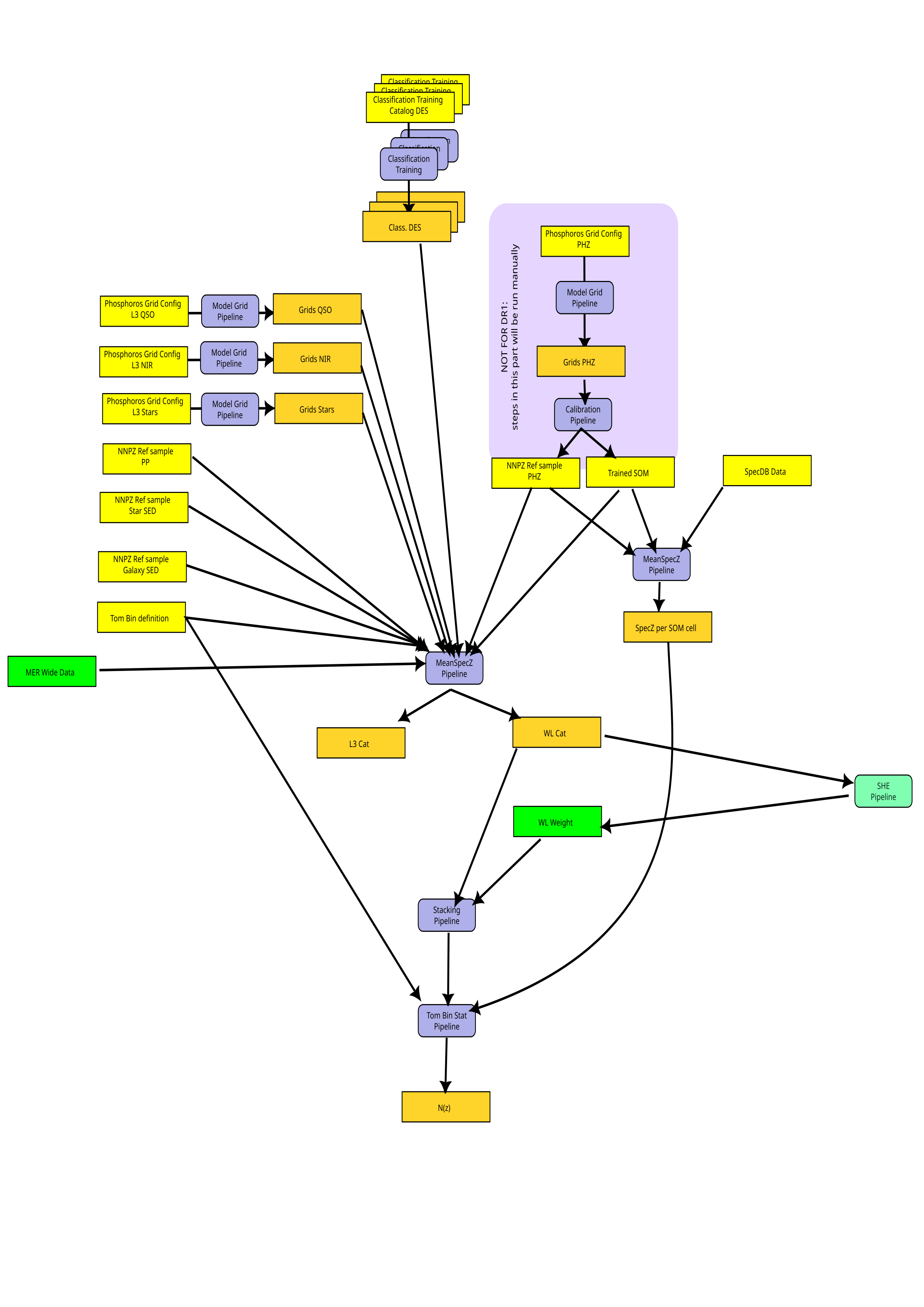Introduction¶
The PHZ PF is the Euclid SGS processing module responsible for receiving the photometry and morphology information from MER and producing the photometric redshift PDF to be used by LE3, the star spectral energy distributions to be used for PSF modeling by SHE and the physical parameters to be stored in the Euclid catalog. The following context diagram demonstrates the interfaces of the PHZ PF with the other Euclid processing functions.

The main input of the PHZ PF is the MER Final Catalog which contains the photometry and morphology information, as produced by MER PF.
The other input coming from another PF is the SHE Reconciled Measurements Catalog which is produced by SHE based on PHZ PF output catalog product for WL computed for each Tile. In a second time, this input allows to compute the mean redshift and density distribution n(z) for the tomographic bins to be used by LE3 PFs
The rest of the input products come from EAS and are static models which constitute the configuration input of the PHZ PF processing elements. They are ingest in the EAS manually and their specific instances are directly referred in the IAL workflow description.
For each input catalog the PHZ PF produces a PHZ PF output catalog product for WL and a PHZ PF output catalog product for LE3 catalogs. The columns of these catalogs are split between different files in order to simplify the retrieval and the use by the L3 PFs (see the corresponding descriptions for details).
Furthermore the PHZ PF is also in charge of producing the Mean Redshift of the Tomographic bins. This product contains the redshift distribution and mean values for each tomographic bin. The main difference in the way the Bin Mean Redshift are produced with respect to the PHZ PF Output catalogs, is that they have to be computed on the full sky, accumulating Photometric redshift co-added PDZ bias map product partial results produced along each of the PHZ PF Output catalogs.
Details of the pipelines involved into the PHZ PF are depicted in the following picture:

The following subsections describe the above data products in detail.